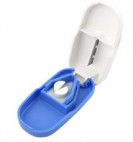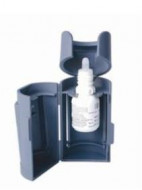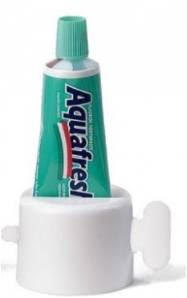Try the following if you have problems getting your medicines out of its foil packaging:
- Ask your pharmacist if they can remove the tablets or capsules from the foil packaging and put them in bottles for you.
- Try a pill popper device. This is a plastic device that is placed over the pill you want to take. Give it a squeeze and the pill pops out undamaged.



 If your dose is half a tablet, you can split the tablet into 2 by either breaking the tablet along a scored line, or using a tablet cutter. You can buy a tablet cutter from your pharmacy.
If your dose is half a tablet, you can split the tablet into 2 by either breaking the tablet along a scored line, or using a tablet cutter. You can buy a tablet cutter from your pharmacy. 






